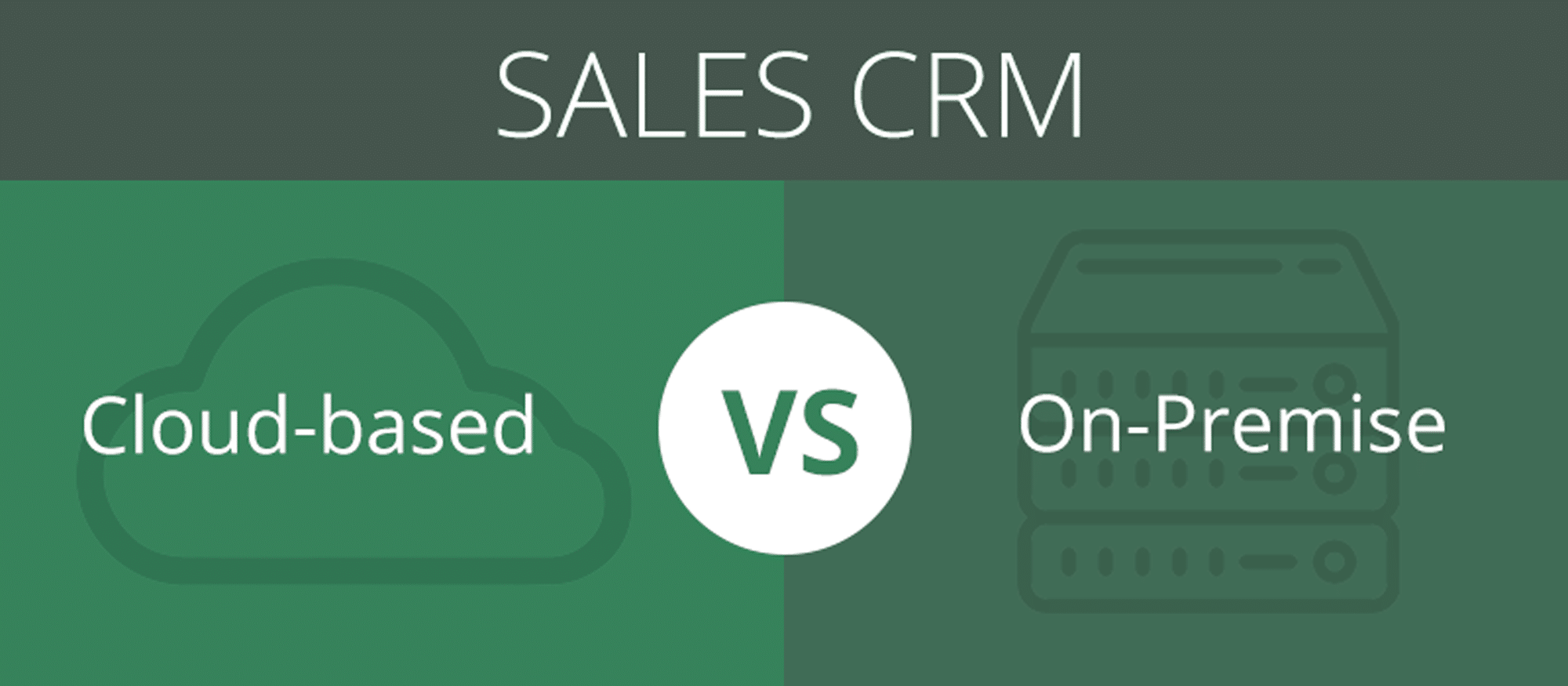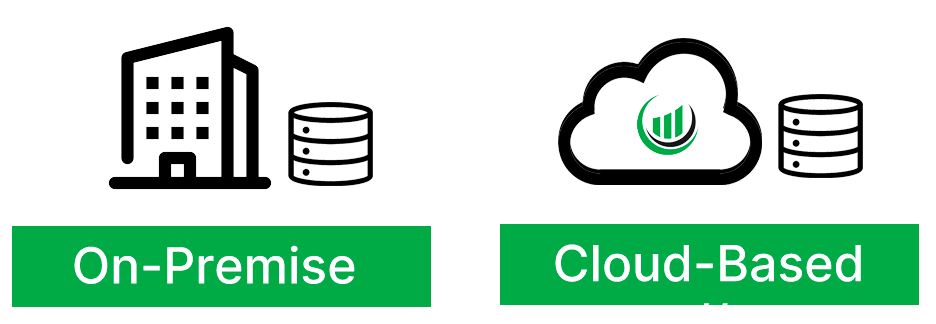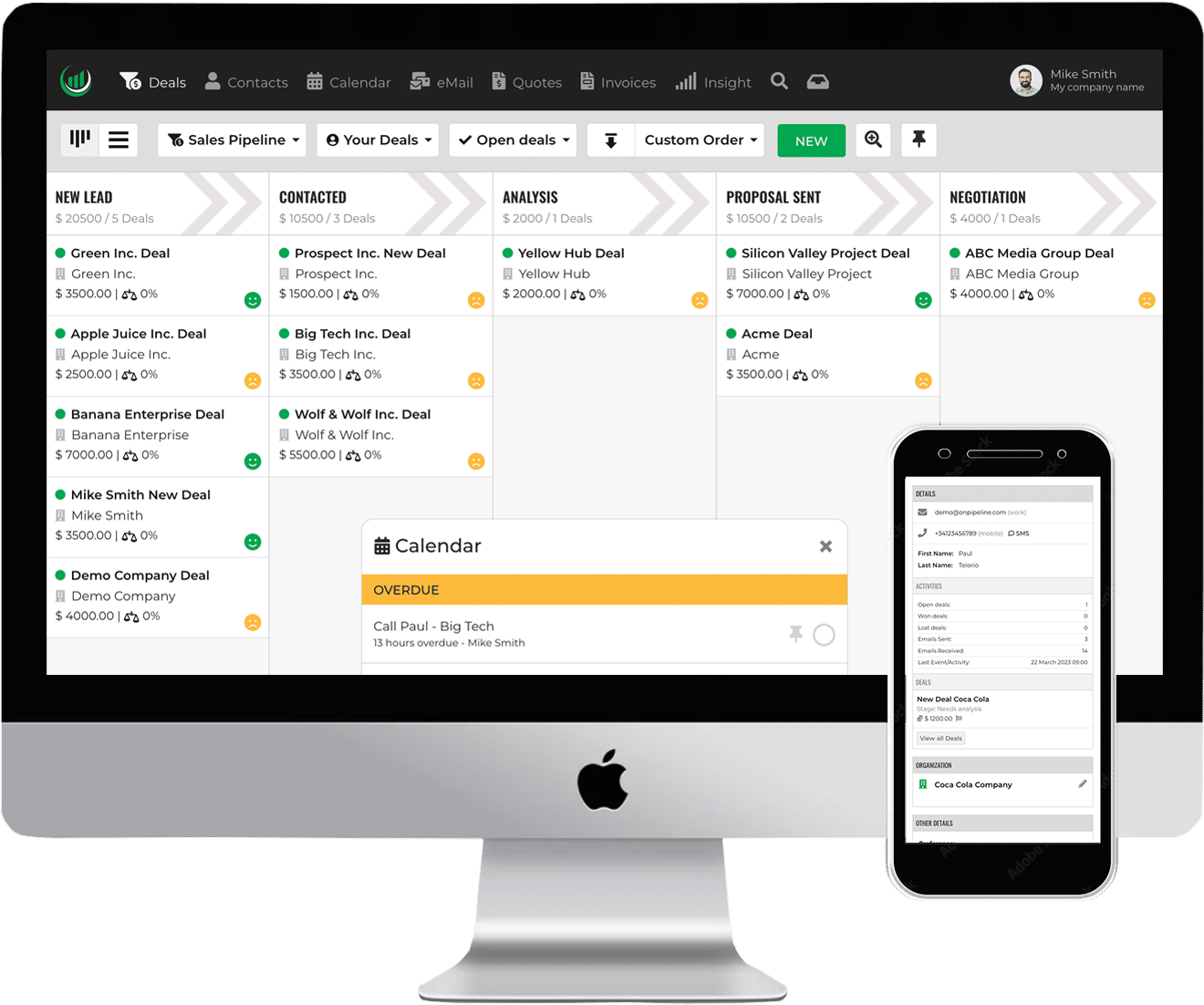In this article, we’ll provide an overview of cloud-based sales CRM and how it differs from on-premise solutions. By the end of this article, you’ll have a better understanding of which CRM solution is best suited for your business needs.
Cloud-Based Sales CRM
Cloud-based sales CRM, also known as Software-as-a-Service (SaaS) CRM, is a model where the CRM software is hosted on a remote server and accessed through the internet.
This means that the CRM provider is responsible for managing and maintaining the software, while you access it through the internet.
Advantages of Cloud-Based Sales CRM
1. Scalability and flexibility
One of the main advantages of cloud-based sales CRM is that it’s highly scalable and flexible. Since the software is hosted on a remote server, you can easily add or remove users as needed, without having to worry about server capacity or infrastructure.
This makes cloud-based sales CRM a good fit for businesses that have fluctuating user needs or are looking to scale their operations rapidly.
2. Cost-Effectiveness
Another advantage of cloud-based sales CRM is that it’s usually more cost-effective than on-premise solutions. With cloud-based sales CRM, you typically pay a monthly or annual subscription fee, which includes the cost of software updates, maintenance, and support.
This means that you don’t have to bear the upfront cost of purchasing and installing hardware, nor do you have to worry about hiring IT staff to manage your CRM system.
3. Ease of use and quick implementation
Lastly, cloud-based sales CRM is typically more user-friendly and easier to set up than on-premise solutions.
Since the software is hosted by the CRM provider, you don’t have to worry about installing and configuring software on your own servers. Instead, you can start using the CRM system right away, with minimal training required.
Disadvantages of Cloud-Based Sales CRM
One of the main disadvantages of cloud-based sales CRM is that it relies heavily on internet connectivity.
If you have poor or unreliable internet connectivity, you may experience slow loading times or difficulty accessing your CRM data. This can be a major disadvantage for sales teams that work in remote areas or have limited internet access.
What is On-Premise CRM?
On-premise CRM, as the name suggests, is a type of customer relationship management (CRM) software that is installed and run on the company’s own servers and hardware.
Advantages of on-premise CRM
One of the biggest differences between the two types of CRM solutions is the level of control and ownership a company has.
Since the software is installed locally, companies can customize it to their specific needs and integrate it with their existing software and systems. This level of customization is not always possible with cloud-based sales CRM.
Disadvantage of on-premise CRM
However, one disadvantage of on-premise CRM is the upfront costs involved in purchasing and implementing the software.
Companies must purchase the necessary hardware, licenses, and maintenance services, which can be a significant investment.
Additionally, on-premise CRM requires ongoing maintenance and updates, which can also be costly and time-consuming.
1. Limited scalability
Another disadvantage of on-premise CRM is its limited scalability and mobility.
Since the software is installed locally, it could only be accessed within the company’s network and is not easily accessible outside of the office. This can be a disadvantage for companies with remote workers or multiple locations.
2. Upfront Costs and Maintenance
One of the biggest disadvantages of on-premise CRM is the significant upfront costs involved in purchasing and implementing the software.
Companies need to purchase the necessary hardware, licenses, and maintenance services, which can be a significant investment.
The initial costs of an on-premise CRM solution can be a barrier for small and medium-sized businesses, which may not have the resources to make such a large investment upfront.
Which CRM Solution Is Right for You?
Choosing the right CRM solution for your business depends on your unique needs and priorities. Here are some factors to consider when deciding between cloud-based sales CRM and on-premise CRM.
Cost:
If you have limited upfront budget and want to avoid ongoing maintenance costs, cloud-based sales CRM may be a more affordable option. On the other hand, if you have the resources and prefer to make a larger upfront investment for greater control and customizability, on-premise CRM may be a better choice.
Scalability:
Cloud-based sales CRM is typically more scalable and can easily accommodate growth, while on-premise CRM may require additional hardware and licenses as your business expands.
Security:
Both cloud-based sales CRM and on-premise CRM can be secure if implemented and managed properly. However, if you have specific security requirements, on-premise CRM may offer greater control.
Mobility:
If your sales team needs to access the CRM solution on-the-go, cloud-based sales CRM may be a more suitable option. It allows access from anywhere with an internet connection, while on-premise CRM may require VPN access or remote desktop solutions.
Customization:
If your business requires a high level of customization and integration with other systems, on-premise CRM may be the better option. However, cloud-based sales CRM solutions are becoming increasingly customizable and can offer a range of integrations as well.
The decision between cloud-based sales CRM and on-premise CRM comes down to your business’s specific needs and priorities. Consider these factors carefully, and evaluate potential CRM solutions to find the one that is right for you.
Cost comparison
Cloud-based Sales CRM costs:
- Subscription-based model with monthly or annual fees
- No upfront costs for hardware or software installation
Predictable and scalable costs based on the number of users and features needed - Average monthly cost ranges from $25 to $150 per user, depending on the vendor and plan
- Some vendors offer discounts for annual or multi-year contracts
On-Premise CRM costs:
- Upfront costs for hardware, software licenses, and installation
- Ongoing costs for maintenance, upgrades, and IT support
- Costs can vary widely based on the size of the organization, number of users, and customization requirements
- Average upfront cost for a mid-sized business ranges from $25,000 to $50,000
- Ongoing maintenance and support costs can add up to 20-30% of the initial investment annually
Cloud-based sales CRM can offer significant advantages over on-premise CRM.
For example, a company with 50 sales reps
a) using a cloud-based sales CRM at $25 per user per month would spend $30,000 / year
($25 x 50) x 12 = $15,000
b) using an on-premise CRM with a $50,000 upfront cost and 20% annual maintenance costs would spend $60,000 in the first year alone and an additional $10,000 to $15,000 per year thereafter.
In this scenario, you would save $50,000 over the first 3 years by using the cloud-based CRM solution instead of the on-premise CRM solution.



